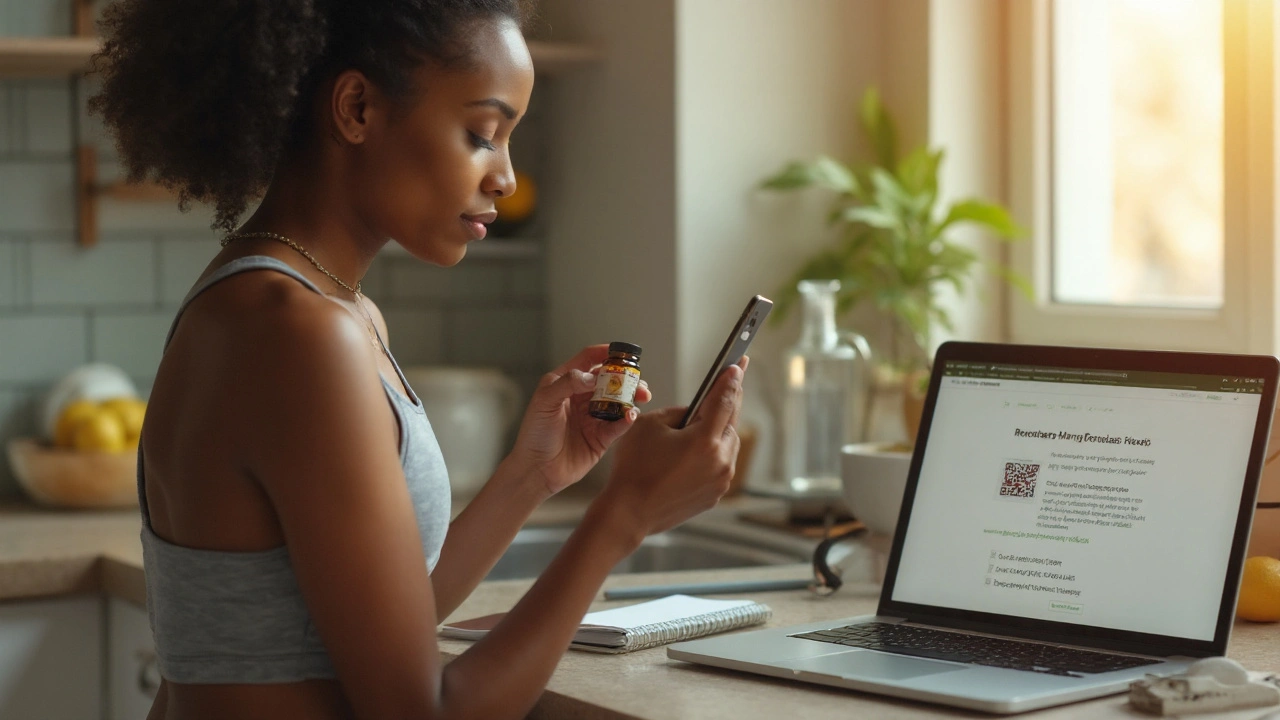Safety Guides: How to Buy Medications & Supplements Securely
When you shop for meds or supplements on the internet, the first question should be: is it safe? The answer depends on a few simple checks you can do yourself. From verifying a pharmacy’s license to spotting red flags on supplement labels, these steps keep you from counterfeit drugs and nasty side‑effects.
Key Checks Before You Click ‘Buy’
1. Verify the pharmacy’s credentials. Look for a physical address, a registered pharmacy number, and a clear contact phone. In the UK, a legitimate online pharmacy will have a GPhC (General Pharmaceutical Council) registration; in the US, check for a NABP (.pharmacy) domain. If the site hides this info, walk away.
2. Demand a prescription when required. Drugs like gabapentin, enoxaparin, or rosuvastatin need a valid prescription. A reputable site will ask you to upload a doctor's note before processing the order. Any site offering these meds “no prescription needed” is most likely selling fake products.
3. Look for secure payment methods. HTTPS encryption, credit‑card verification, and recognized payment gateways (PayPal, Stripe) protect your financial data. Avoid sites that only accept wire transfers or cryptocurrency for prescription drugs.
4. Check prices for realism. If a brand‑name drug is 80% cheaper than the average market price, that’s a warning sign. Counterfeit copies often use low prices to lure buyers.
Supplement Safety: What to Watch For
Supplements sit in a gray area because they’re not regulated like prescription meds. That doesn’t mean they’re safe by default. Here’s how to stay protected:
Read the ingredient list. Look for hidden stimulants, allergens, or compounds you’ve heard can cause toxicity – for example, grayanotoxins in Rusty‑Leaved Rhododendron supplements. If a product claims “proprietary blend” without disclosure, it’s best to skip it.
Research the manufacturer. Reputable brands publish third‑party test results, batch numbers, and GMP (Good Manufacturing Practice) certifications. A quick Google search can reveal if the company has faced safety warnings.
Start low, go slow. Even natural compounds can interact with prescription drugs. Take only the recommended dose at first and monitor how you feel. If you notice unexpected side effects, stop and talk to a healthcare professional.
Finally, keep a personal safety checklist handy:
- Is the site licensed and does it display clear contact info?
- Does the product require a prescription, and is that request legitimate?
- Are payment and shipping methods secure?
- Do the prices look too good to be true?
- For supplements, are ingredients fully listed and third‑party tested?
By following these simple steps, you can shop for meds and supplements with confidence, avoid dangerous knock‑offs, and protect your health. Remember, safety isn’t a one‑time check – make it a habit every time you order online.
-
Mercury Herb Supplement: Benefits, Risks, Evidence, and Safe Use (2025 Guide)
Curious about Mercury Herb? See what it claims, what evidence exists, safety risks, UK rules, and how to try it safely-or choose better alternatives.
